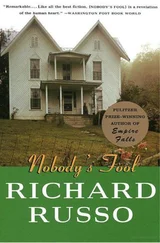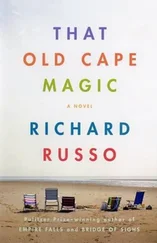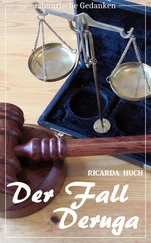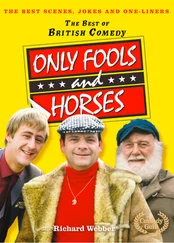“I’m headed out there now if you want a lift,” Jocko had offered, but Rub, feeling gutted, turned away so the other man wouldn’t see his tears spill over. Here was the terrible truth he hadn’t wanted to see: he was on his own.
We’re all on our own, Dummy. No exceptions.
“But—” Rub began.
Besides, you’re exaggerating. It’s not like I abandoned you.
Not completely, no. When Sully’s luck first changed, that had been Rub’s worst fear — that Sully would just move away, to someplace nicer, warmer, where Rub couldn’t follow. But so far he’d shown no such inclination. Sometimes out at Hilldale, Sully’s truck would pull up outside the tool shed on Friday afternoons as Rub was closing up, and they’d head for beer at the Horse like they used to. Other times he’d drive out to where he and Bootsie lived, and together they’d drive back into town and eat breakfast at Hattie’s and after that stop in at the OTB. But not often enough. Rub needed to know when Sully was coming, otherwise he’d wonder all day if he was. Only every night and every day would be often enough.
Noticing, finally, how dejected and listless Rub had become, Sully had tried to explain how he was staying home more now, not wasting so much time carousing. He wanted to set a better example for his grandson. It wasn’t good for the boy to see him coming home shitfaced every night after the bars closed, getting his name in the police log for some damned foolishness or other. Rub wanted to believe him. He truly did. But from small things Sully let drop, it seemed he was still a regular at the Horse. Suspicious, Rub sometimes called and asked for him, but Birdie, the regular bartender, recognized his stammer. She always claimed Sully wasn’t there, hadn’t seen him for days, in fact. But then Rub had heard her say similar things to the wives of men sitting right in front of her, so he could easily imagine her raising an eyebrow in Sully’s direction and him shaking his head no, just like these other men did.
“I just wisht you weren’t always in such a hurry,” Rub said weakly. He hated it when Sully went silent. It was bad enough when what he said was untrue or unfair, but silence was even worse, because to Rub that either meant he’d lost interest or didn’t think what Rub was trying to explain merited any response. These days Sully always seemed to be in a hurry, anxious to be off to the next place, as if he was being pursued by something neither of them could name. Was that how things would be this afternoon? Not if Rub could help it. Pruning the offending tree limb wouldn’t take more than half an hour, but he was determined to make an afternoon of it. With Bootsie safely at work and Sully’s son and grandson away, they could pull up a couple of lawn chairs and Rub could tell him all the things he’d been storing up, each thought leading to the next and then the next, until he’d covered all of it. Whereas if he sensed Sully was in a hurry, the words would get all jammed up in the back of his throat.
That had been the worst thing about being Sully’s friend: having to share him. At Hattie’s, the OTB, the White Horse Tavern? It didn’t matter. The cruel arithmetic of their friendship was such that while Sully was Rub’s only friend, Rub was one of Sully’s many. In addition to his son and grandson, both of whom Rub resented deeply, though he knew he wasn’t supposed to, there was Carl Roebuck, whom he resented even more. As their former employer, he had exactly no claim on Sully’s affection but seemed to have it anyway. And then there was Ruth, down at Hattie’s. Sully claimed they weren’t carrying on anymore, but if that was true, why was she still his friend? The list went on and on. Birdie out at the Horse and Jocko and all the other regulars. Also Sully’s Upper Main Street ladies, elderly widows who lived in decaying Victorians and counted on Sully to bring them to the hairdresser and fix their faulty plumbing, though they never paid him. Why did any of these people come in for a share?
Since it seemed to be a real math problem, for a time Rub had put his faith in subtraction. When Sully’s landlady died, Rub imagined he’d be first in line for the old woman’s share of his friend’s time and affection, but somehow that hadn’t happened. And he’d allowed himself to get his hopes up a year later when Wirf, Sully’s lawyer and boon drinking companion, had passed but again, no dice. Indeed, every time someone in his friend’s inner circle died or moved away, it was as if Sully himself was proportionately diminished, so there was never a net gain. This fall Will would head off to college, and Peter claimed that when this happened he, too, would be leaving town, news that once upon a time would’ve buoyed Rub’s spirits, but no longer.
You should’ve listened to your mother.
“You nuh-nuh-nuh—”
I nuh-nuh-nuh?
“You n-never even met her.”
She told you what would happen, though. You just didn’t believe her.
Even after all these years Rub didn’t like to think about his mother, who’d tried her best for him. As a child he’d been slow to talk, going on three before he uttered his first word. He’d been named Robert, after his father, but she wanted to call him Rob, since her husband was Bob. But Rub had struggled with the sound, indeed with many sounds, and before long it became clear that his speech would be seriously impeded. It took him so long to spit out the R sound that he was exhausted, and what followed sounded more like ubb than obb, so his mother had decided to just go with that. Later, seeing how lonely and friendless Rub was at school, where his stammer made him the butt of endless jokes, she’d recommended Jesus, who she claimed was the most important friend to have, though she couldn’t have anticipated Sully. Sometimes she took Rub to the ramshackle church she visited on Sundays where they talked about Jesus and the rapture at the end of the world, but one week a man brought snakes, and Rub was so terrified that after that his mother left him home with his father. And Jesus became, for him, just the man on the calendar.
Every month there was a new one to contemplate — January Jesus, June Jesus, December Jesus — with all these as constant and reliable as the seasons, as ubiquitous as time itself. Though Rub’s circumstances grew increasingly dire as the months unfolded, Calendar Jesus always bore the same beatific expression. Even carrying the heavy cross, his head crowned with jagged thorns, his palms punctured (a discrete drop of bright red blood on each), Jesus remained serene, and Rub, an anxious child, hoped that when he grew up, he, too, would find such grace in the face of hardship, that his more or less constant longing would yield to tranquil acceptance. Of course this wasn’t to be, and twenty years later when he accidentally punctured his own left palm with a nail gun, he discovered that if you weren’t the Son of God (or at least a distant cousin) serenity in the face of that kind of pain was not an option.
His poor mother. Most of the time she bore a kind, faraway expression that made Rub wonder if she could read the future and if that was why she worried about him so much. But maybe it was her own future, her own loneliness, she was contemplating, not his. Though he and his father were right there, to Rub she seemed every bit as forlorn as he was, and for this he blamed himself. While he knew he was just a boy and no proper companion for a grown woman, he felt guilty anyway. She never left the house except to go to church, for which his father religiously ridiculed her. You might as well believe in the Easter Bunny, he liked to tell her, which was how Rub had come to understand there wasn’t one. Because he loved his mother and knew it was what she wanted, he tried praying to Calendar Jesus for a while. She’d taught him how, but obviously he wasn’t doing it right, because when he finished saying the words he wasn’t filled to overflowing with the Savior’s love, like she said he’d be, but even more empty and alone than before. His father? Rub knew it was a sin, but he hated the man even as he loved him, for his nasty laugh and his refusal to ever have a kind word for anyone. In the end, though, he came around to his father’s view with respect to Jesus, after which the Son of God assumed a status more or less equivalent to the Bunny with whom he shared a holiday.
Читать дальше












